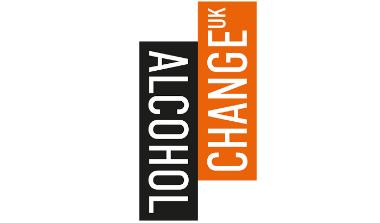What Is Mindful Drinking & Is It Right For Me?
Mental Health / Alcohol GuidanceYou might have heard about mindful drinking, but what exactly does that mean? For those of you who chose to drink, we're sharing our top three tips to help you get to grips with more mindful drinking.
Before we dive in, understanding what mindfulness means more generally could prove useful when it comes to mindful drinking. In short, mindfulness means taking active steps to slow down and focus on the here and now, rather than getting caught up thinking about the past and worrying about the future.
With practice, mindfulness can help people observe current thoughts and feelings in a calmer way, without judgement. If you’ve taken part in Dry January® with Alcohol Change UK, you may have noticed that we often suggest getting familiar with mindfulness techniques during a dry month to help build resilience and stay on track.
Why would I want to drink alcohol mindfully?
There are plenty of reasons why you might want to consider mindful drinking. You may just want to drink within the low-risk guidelines of 14 units per week. Perhaps you feel drinking negatively impacts your mental health and you want to limit that effect where you can. You may want to avoid the feelings of social pressure (A.K.A beer pressure) to drink more when out with friends. Maybe you’re keen to develop the skills to drink moderately and want to try out drinking mindfully as a step towards that.
This all sounds great we hear you say, but how can I put it into practice? Why not try asking yourself these quick questions to switch your gear into mindful mode:
Q1: (Before you have a drink) Do I really need to have this drink? Is it going to serve me at all?
Taking a minute to ask yourself this question means you’re making the decision to drink with conscious thought, rather than glossing over it or automatically saying ‘yes’ to another. Sometimes people find that choosing to start with an alcohol-free drink can allow them time to settle in and explore this question. By slowing down your decision to drink in this way, you can start to understand the part alcohol is playing in your life.
Q2: (Once you have a drink) How long will I make this drink last?
Let’s imagine you’ve begun drinking that drink you’ve ordered (or poured yourself if you’re at home). Is there any way you can make the drink last longer? Could you sip it, or use a drinking straw to help slow down the process a bit? Can you make an effort to put your drink down between sips? Take a moment and note the drink’s flavour or taste, rather than sinking the pints.
When we drink alcohol quickly without paying attention to the moment, we tend to drink more than we want. People who engage in mindful drinking realise that they don’t actually need or want all the drinks they were previously consuming so it can be a great way to cut down.
Q3: (When you’re coming to the end of your drink) Could I make my next drink alcohol-free?
The answer to this one should really be a resounding ‘yes’. Remember that when you are trying to make any change to your drinking, whether that is to cut down, take a break or be more mindful, there will be moments of discomfort as you try and form new patterns and behaviours. Mindful drinking can help you to understand what that discomfort is about if you can allow yourself time to observe the thoughts and feelings that arise.
Sometimes people find that the association between alcohol and having a good time is very strong for them. When they choose to drink less they can feel a bit self-conscious. As you become more aware of your thoughts and feelings, it’s ok to cut yourself some slack and recognise moments of discomfort - even when others may expect you to be enjoying yourself. If you’re feeling awkward in a situation, it can be useful to identify what your body or mind is trying to tell you.
Maybe you begin to see that you use alcohol to make yourself feel more comfortable or in some cases to make the people or surroundings more bearable. Either way this is great insight and it can allow you to reassess your options.
For example, if you’re in the pub and the conversation’s drying up, could you suggest a game on the pool table instead to help loosen things up? Or maybe a last-minute entry into the pub quiz? And if it’s really not working for you, you always have the option to leave a little earlier as you get used to flexing your new mindful drinking muscles. A little practice and you’ll be a pro in no time!








































































































